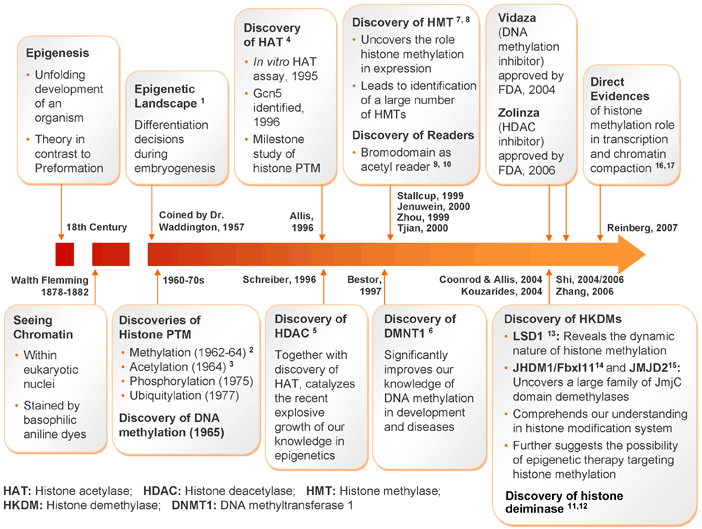Epigenetics is the study of the altered phenotypic expression of genes which simultaneously lack genotoypic modifications.
The study of epigenetics is quickly becoming one of the most promising fields in science. The term "epigeomics" literally means "above the genome." Therefore, epigenomics is the study of the many different factors that can alter gene expression among individuals. Lately, discussion whether epigenetics ought to include non-heritable changes has arisen. A consensus has not yet been reached, as researchers lack sufficient information to determine whether certain changes to the genome (that do not alter the sequence of base pairs) are indeed heritable.
Conrad
Waddington first coined the term "epigenetics", which is the confluence of the
words "genetics" and "epigenesis". The latter was first theorized by
Aristotle in On
the Generation of Animals as "the development of individual organic form from the
unformed."
Scientists knew about epigenetics as far back as the 1970s. However, research into epigenetics only began in the early 90s, when scientists discovered the main mechanisms of epigenetic changes.
As you travel through the exciting and wonderful world of epigenetics on our webpage, you will learn about the mechanisms of epigenetics and the factors that influence them, innovators and innovations of the field, the applications of epigenetics, and its impacts on the scientific, economic, political, social, ethical and legal scale.
Red, underlined words will link you to our citations page, where you can see the numerous sources we used in this project. Yellow, bolded and underlined words will link you to various pages on our website. Green, underlined words will link you to other, respective websites.
